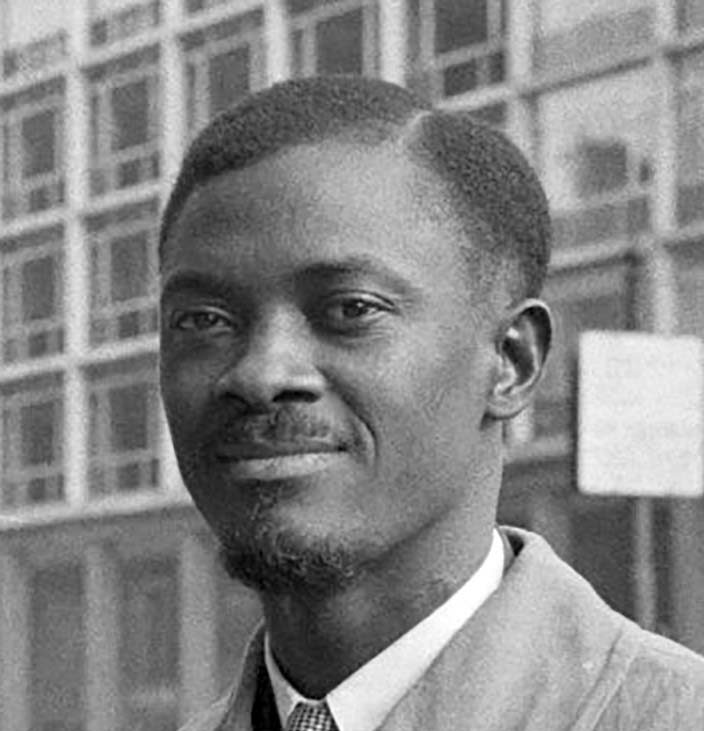Patrice Lumumba, the first prime minister of the independent nation, the Republic of Congo, was born July 2, 1925, in Onalua in Kasai province of the Belgian Congo. With just primary education, Lumumba emerged to become one of Africa’s most vocal critics of colonialism. Early in life, he developed interests in grassroots union activities and joined the Postal Union. As secretary-general of the union, Lumumba began publishing essays critical of Belgian colonial rule and advocating independence and a unified centralized Congo. His writings appealed beyond ethnic and regional loyalties to a national constituency.
In 1955, Lumumba became regional leader of the Circle of Stanleyville and joined the Belgian Liberal Party. In 1956, he was arrested and charged with embezzling union funds and sentenced to two years imprisonment. Released after twelve months, Lumumba became sales director of a brewery in Leopoldville. To solidify his political base, in 1957 Lumumba helped found a broad-based organization that appealed beyond ethnic and regional loyalties—Movement National Congolais (MNC). The following year, he represented the MNC at the Pan-African Conference in Accra, Ghana.
His relentless attacks on Belgian rule soon fractured the MNC, resulting in a leadership split in July 1959. Undaunted, Lumumba insisted on the complete dismantling of Belgian rule. In October 1959, he was arrested for allegedly inciting anti-colonial riots and sentenced to six months. Shortly thereafter, the Belgian government summoned a conference in Brussels to discuss the future of the Congo. Confronted by MNC’s threat of boycott, the government released Lumumba. In Brussels, Lumumba boldly condemned Belgian rule and advocated immediate independence. Convinced of the imminence of Congolese freedom, Belgium set aside June 30, 1960, as Independence Day.
The Movement National Congolais won the majority in the general election held in May 1960, and Lumumba became prime minister of the Congo, with his political rival Joseph Kasavubu as president. Lumumba’s scathing denunciation of colonialism ruffled feathers not only in Belgium but also in the United States and Great Britain. Unfortunately, his tenure was brief and marred by crises. It began with the army revolt and secession in Katanga and Southern Kasai.
When the United Nations ignored his repeated appeals for intervention, Lumumba turned to the Soviet Union. This move only strengthened western opposition to his regime. Using the crisis as an excuse, Kasavubu dismissed Lumumba as Prime Minister. Though reinstated by the National Assembly, Lumumba was subsequently overthrown by Col. Joseph (later Sese Seko) Mobutu and placed under house arrest. He made the fateful attempt to escape to Stanleyville where his supporters had gained control. He was apprehended by secessionist rebels and assassinated on January 18, 1961.
Lumumba became a martyr and symbol of Congolese and African freedom. He is remembered today as one of only a handful of African leaders truly dedicated to national unity and genuine independence. In February 2002, responding to a Belgian Commission’s Report that implicated Belgium in Lumumba’s death, the Belgian government acknowledged “moral responsibility” and officially apologized. Lumumba remains an inspiration to African politicians. Several of the major political parties in the 2006 presidential election in the Congo invoked Lumumba’s legacy.

